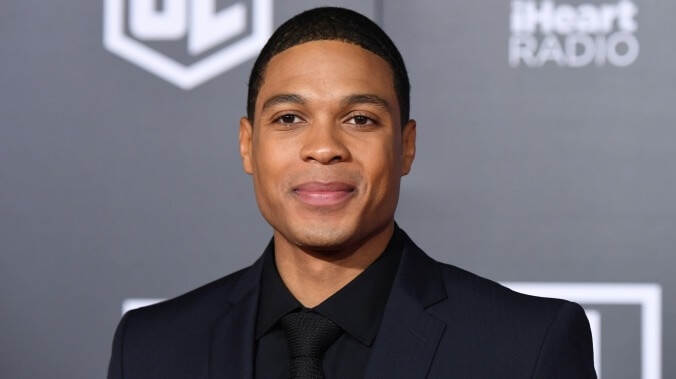Ray Fisher is done being cryptic about what he experienced on Justice League

After months of competing tweets and statements between Ray Fisher and WarnerMedia executives, the actor is opening up about his experiences with Joss Whedon and studio executives on Justice League following Zack Snyder’s exit in 2017. In a tweet from July 2020, Fisher called out Whedon—who replaced Snyder as director—for “gross, abusive, unprofessional, and completely unacceptable” behavior. That tweet was just the beginning. In the months that followed, Warner Media conducted an internal investigation based on Fisher’s claims, while some of his Justice League co-stars voiced support for the actor, who played Cyborg in the film. Now, THR has published a lengthy story on Fisher, in which he offers a thorough account of his allegations against Whedon and studio executives, including Geoff Johns, Walter Hamada, and Jon Berg. For its part, WarnerMedia says it has “complete confidence in the investigation process,” as well as the conclusions reached by investigator Katherine Forrest, who told THR she interviewed over 80 witnesses and found “no credible support for claims of racial animus.”
The exhaustive new report includes troubling details—some of which Fisher alluded to in late March on Twitter—such as a conversation between former DC Films co-chairman Jon Berg and Warner studio head Toby Emmerich, during which a witness claims the pair expressed concern over having an “angry Black man” at the center of Justice League. Fisher says that once Whedon came on board to complete the film, his own concerns about representation—particularly because he was portraying the first Black superhero in a live-action DC movie—were dismissed, even after the director asked the cast for feedback on script changes. Another conflict arose when the studio became insistent on Fisher saying “booyah” in the film—a catchphrase often used by Cyborg in the animated series Teen Titans. Fisher felt uncomfortable, given that this was not something the character ever said in the comics or in Snyder’s script; that discomfort was compounded by the fact that none of his co-stars had catchphrases. The actor says this made him think of Black actors like Gary Coleman and Jimmie Walker, who became synonymous with the catchphrases of their TV counterparts.
Fisher respectfully declined to speak on behalf of witnesses or co-stars involved in the investigation, including Jason Momoa—who previously expressed anger with WarnerMedia for releasing a “fake” story about his casting in an upcoming animated film in an apparent effort to distract from the situation with Fisher; the studio released the story on July 1, 2020, the same day Fisher first tweeted about Whedon. THR has also expanded on the conflict between Whedon and Gal Gadot, who took her concerns to studio higher-ups (something Fisher says Johns criticized him for doing after Fisher’s agent reached out to Emmerich on his behalf) with the support of her Wonder Woman director, Patty Jenkins. In one particularly damning passage, the article details how Whedon allegedly threatened Gadot’s career and bullied her into saying lines she took issue with:
The biggest clash, sources say, came when Whedon pushed Gadot to record lines she didn’t like, threatened to harm Gadot’s career and disparaged Wonder Woman director Patty Jenkins. While Fisher declines to discuss any of what transpired with Gadot, a witness on the production who later spoke to investigators says that after one clash, “Joss was bragging that he’s had it out with Gal. He told her he’s the writer and she’s going to shut up and say the lines and he can make her look incredibly stupid in this movie.”
That behavior is certainly in step with similar allegations made about Whedon by cast and crew of his previous projects, spurred by Buffy The Vampire Slayer and Angel star Charisma Carpenter. The actress—who participated in Warner’s investigation into Fisher’s allegations—publicly detailed her painful experiences with Whedon back in February.
Though much of Fisher’s original scenes were restored for Zack Snyder’s four-hour cut of Justice League, which recently premiered on HBO Max, the damage has been done. Like Snyder, Fisher has moved on from the franchise and the studio—which seems to have taken on the conspiracist mindset that drove so many Snyder fans to demand the release of the “Snyder Cut” of Justice League: Per THR, “Warners sources contend that Fisher was being manipulated by Snyder, who hoped to reclaim control of the DC film universe.”